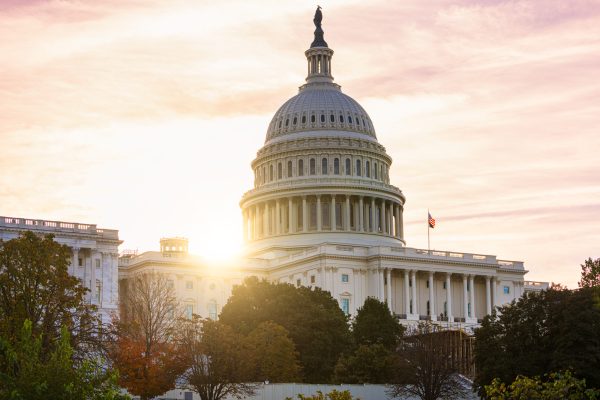An analysis of 20 years of congressional speeches shows that support for Taiwan is increasingly a central pillar in the U.S. competition with China.
NEW YORK — Eleven years ago, then-Representative. Marsha Blackburn (R-TN) praised Taiwan’s economic transformation, calling the island a hub for Asia’s technology sector.
By 2024, Blackburn, now a U.S. senator, was framing Taiwan as a security partner against authoritarian powers, stressing the importance of “standing with our allies like Taiwan and assist them as we stand up to what I call the ‘axis of evil’ – Russia, China, Iran, and North Korea.”
An analysis of 20 years of congressional speeches shows that support for Taiwan is increasingly a central pillar in the United States’ ideological and strategic competition with China – even in an “America First” era.
Since 2020, members of Congress have mentioned Taiwan about an average of 85.7 percent more frequently each month than they did between 2005 and 2019.
In speeches that mention Taiwan, the monthly average of those showing support has more than doubled, negative references to China have increased almost fourfold, and mentions of security have roughly tripled.
U.S. lawmakers now portray Taiwan as a democratic frontline resisting authoritarian expansion, frequently linking it with Ukraine and Israel. Since Russia’s invasion in 2022, 47 percent of speeches that have mentioned Taiwan have also referenced Ukraine.
The data shows that Taiwan remains a bipartisan issue, though Republicans have been more vocal: They delivered more than 1,300 speeches on the topic over the past two decades compared with about 920 for Democrats.
Even under the “America First” banner, the foreign-policy doctrine championed by President Donald Trump, which seeks a sharper focus on U.S. interests, Taiwan is gaining ground on the Hill. That’s driven by the belief among lawmakers of both parties that China is the United States’ biggest strategic threat. For many, Taiwan fits the “America First” narrative, which defends U.S. security interests.
“The balance of power in Asia is very important for the United States. And if Taiwan comes under the control of a hostile power, that’s a direct threat to the United States,” said Robert Sutter, a professor of international affairs at George Was
Continue Reading on The Diplomat
This preview shows approximately 15% of the article. Read the full story on the publisher's website to support quality journalism.
